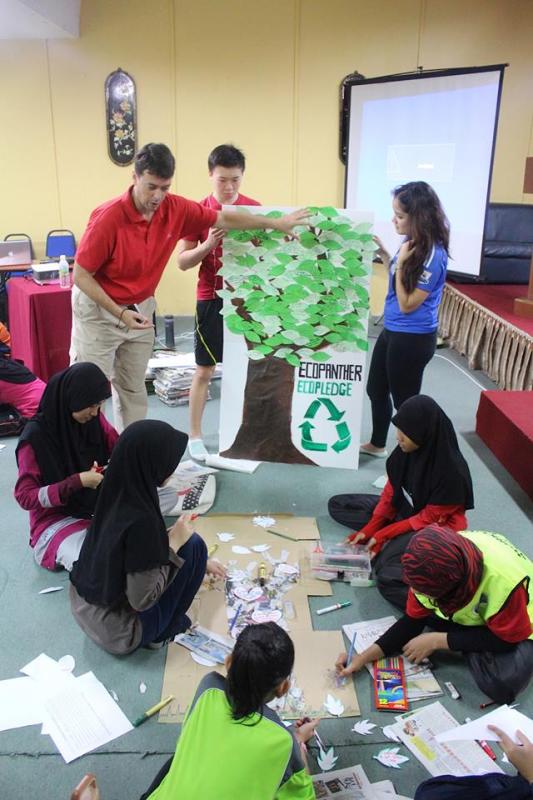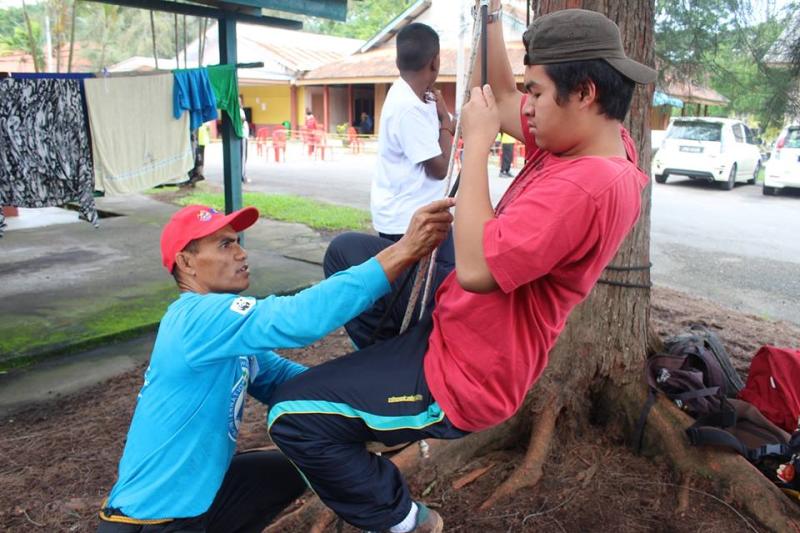By SATHESH RAJ and LYE MING HAN
Photos by MUHAMMAD KHALID
brats@thestar.com.my
IN his opening remarks, Muhd Fikri Bakhri, chairman of the second International Eco-Schools Conference Malaysia, said: “Be naughty, as naughty as you can be.”
Now that’s something the BRATs could definitely do. Three of us were there for the five-day conference in Kuala Selangor, Selangor which drew participants from public and private schools from around the country, as well as a few students from Indonesia and Pakistan.
The Eco-Schools programme, organised by the World Wildlife Fund (WWF) Malaysia, is part of a global initiative designed to guide schools in environmental sustainability education.
WWF Malaysia national coordinator Thiaga Nadeson said: “This conference enables everyone to manage their expectations when it comes to (conserving) the environment, especially with sustainable development in mind.”
Students as young as 10 attended the camp, and they took part in discussions based on this year’s theme, “Forest and Water”.
The discussions ranged from the application of bio-enzymes to the idea of sustainable cafes constructed completely from recycled materials.
“This conference was run by the students, for the students, with the adults only acting as advisory personnel,” said Fikri.
For student Arif Muzafar Abdul Mushir of the Eco-School Council, it was his first time organising an event like this.
“The adult committee, teachers, student council and green mentors – everyone played their parts exceptionally well, and the conference was a success,” said Arif.
International School of Kuala Lumpur sustainability and learning coordinator Laurence Myers was in awe at the effect the programme has had among his students.
“When Eco-Schools came in the picture, we switched to a student-based organisation. So now the kids are running it and it has created a structure for us to follow that allows us teachers to be mere advisors,” said Myers.
Malaysian tea company BOH has worked closely with WWF on its efforts to engage with the green campaigners of tomorrow.
BOH marketing manager Aina Muhammad Ramly said: “To grow good tea, a good environment is needed. And to grow a good environment, we need to go directly to the youth, instill awareness while they are young and hit them at the right age so it will stick with them forever.”
There was a special moment in the camp when SMK Muhibbah in Sandakan, Sabah received the Green Flag Award for their efforts in encouraging environmental conservation. The award was received by its student, Neavean Raj Ananda.
On the last day of the conference, Thiaga encouraged the participants to carry on making a difference in their schools.
He said: “Take the knowledge you have obtained during this conference, and champion the cause to save the environment.”



Tell us what you think!